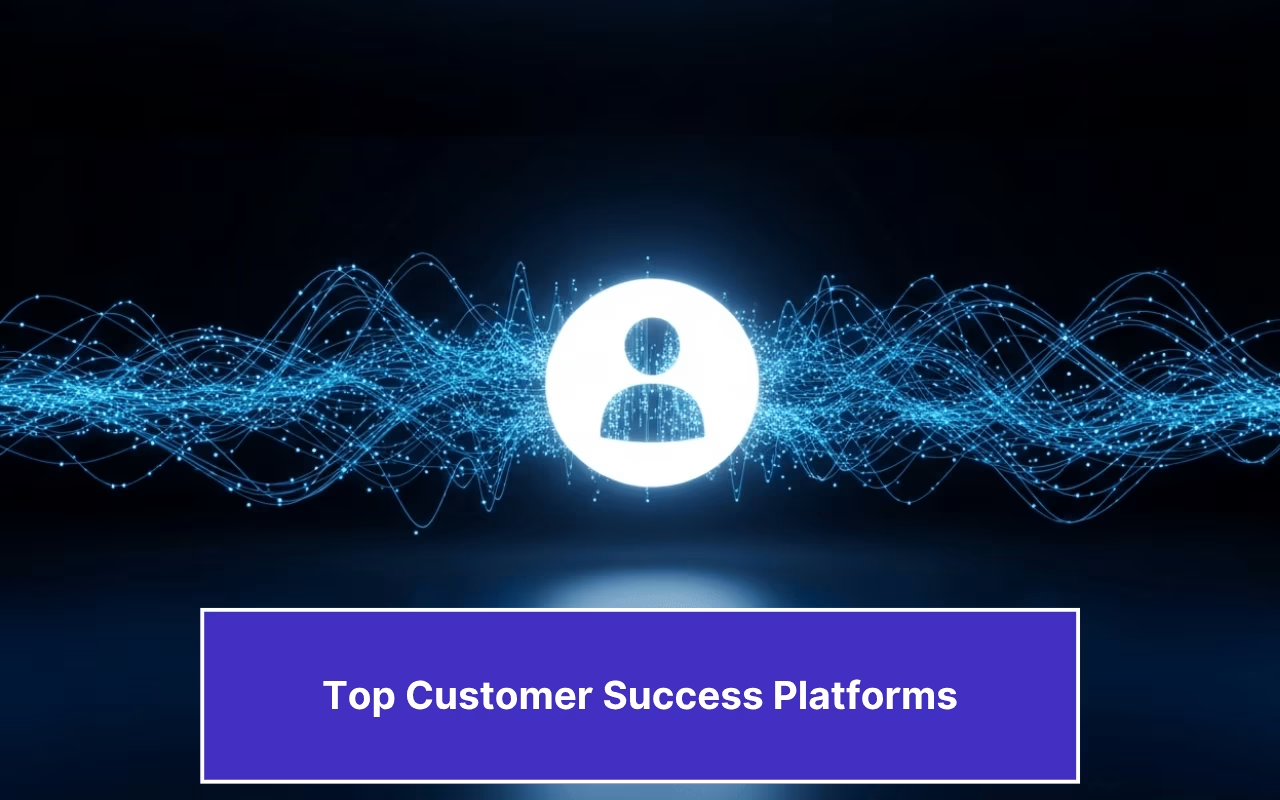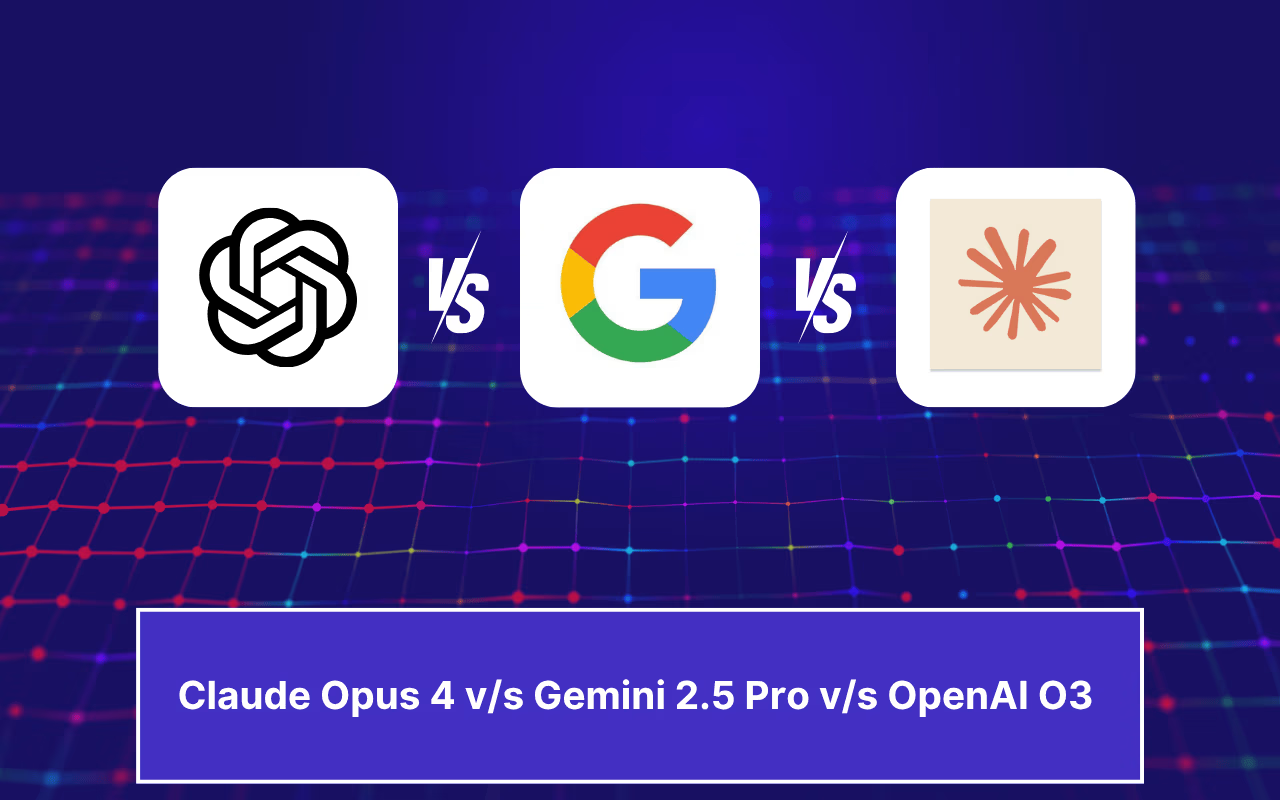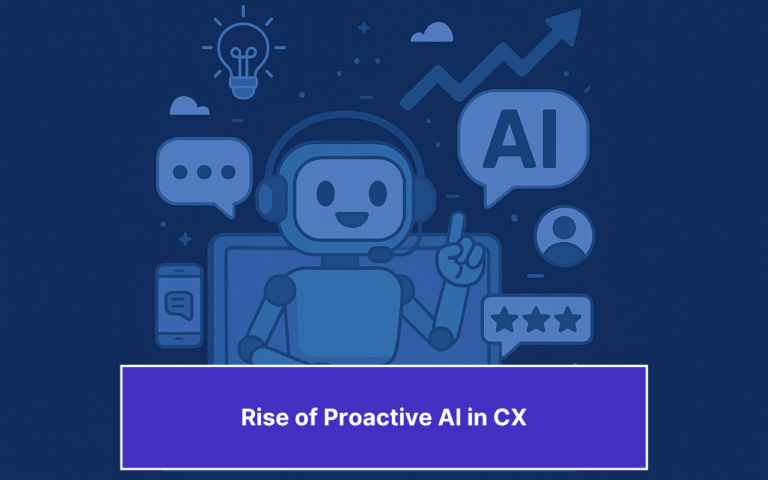Updated on March 18, 2025

AI-powered email ticketing systems have been around since email became a predominant form of communication in the 1990s and 2000s. This software was needed because email-based support has been popular since the 1990s.

Even today, 62% of customers prefer email support for their communications with a business. The customizability of email and the enterprise-grade security that can be integrated with these systems make it one of the biggest customer support channels for most companies.
However, email-based customer support also faces several uphill battles. According to a SuperOffice survey, the average email response time is 12 hours, while 90% of customers expect a reply within an hour or less.
The volume of support emails can also lead to manual errors and agent conflicts (when two agents reply to the same email).
While the problems around response times, email volume, and human errors have existed for years, we haven’t had a good solution till a few years back. With AI, we can create an AI-powered email ticketing system that can automatically generate and categorize tickets, deflect L1 queries, and assist human agents at scale.
This article will explore these helpful capabilities of an AI-powered email ticketing system in-depth. We will cover:
- How do AI-powered email Ticketing Systems Work?
- What are the Benefits of AI-Powered Email Ticketing Systems?
- What are the Real Life Use Cases for AI-powered Email Ticketing?
- What are the Challenges Associated with AI-powered email Ticketing Systems?
How do AI-powered Email Ticketing Systems Work?
The core components of any AI-powered system depend on a basic workflow. We will first understand this workflow for AI email ticketing.
What is the Workflow Behind AI-Powered Email Ticketing Systems?

1. Data Collection and Preprocessing
Any vendor that provides an email ticketing feature must collect the emails you receive in your support inbox. We forward all your support emails to our core platform for our email ticketing product so that our AI can process the emails, create tickets, and resolve L1-level queries.
We also turn incoming emails into vectors to help our AI understand customer queries better. These vector embeddings help us better understand the context of the customer conversation so that our AI agents can answer L1 questions precisely and accurately.
| We’re experts at providing accurate and precise generative AI answers. Read this blog to understand how our AI agents compete against Intercom. |
2. Natural Language Processing
Natural language processing is how an AI model understands human language. We use state-of-the-art AI models (Gemini Flash, Claude Sonnet, and ChatGPT 4-o) to make human language into an AI-readable format.
These models understand the context of the customer conversation, identify customer intent, and understand customer sentiment.

3. Classification and Prioritization
We use the directives from our clients to create classification and prioritization workflows. The AI agents use their understanding of AI queries to classify the ticket.
The agent uses sentiment and intent analysis to understand which customer queries are more urgent and uses that to prioritize tickets.
For example – If someone reports a bug, the AI can understand the content and file it as a Bug Report. Secondly, it will know how it hinders the client’s urgency and sentiment workflows and use these data points to add a priority status to the ticket.
4. Response Generation
Now that the AI has created your ticket and categorized and prioritized it, it can directly generate an answer. For L1 queries, our AI agents use a RAG framework and go into your documents and Knowledge Base to give a relevant answer to the customer.
5. Workflow Automation and Routing
If the AI agent can’t solve the customer query, it is routed to a human agent. You can use skill-based routing to route the tickets to a human agent who can solve the query well. The tickets are also assigned according to their categories and priorities so the most urgent and system-critical queries can be solved faster.
6. Integration with CRM and Helpdesks
Email ticketing systems need to collect data about your business from various platforms. They need to collect customer conversations from your email providers, collect SOPs and troubleshooting docs from your helpdesks, and collect information about your customers from CRMs.
These are all facilitated by different levels of native integrations. At Kommunicate, we connect with all the leading industry players so that you get a fully integrated AI email suite for support in your business.
7. Continuous Learning
One of the most outstanding features of AI is the fact that it can learn and improve its interactions over time. This is done through RLHF and other workflows you can integrate with your product.
We provide an out-of-the-box learning module with all our email ticketing purchases that help the AI agents evolve and become more suited to your business over time.
While this workflow is central to your AI-powered email ticketing system, different ML-powered algorithms work in the backend. The following section will briefly introduce these ML algorithms and concepts.
Which Machine Learning Processes Power AI-Powered Email Ticketing?
1. Natural Language Processing – At the core of AI-powered email ticketing systems is the science behind natural language processing (NLP). Most NLP tasks in these systems are carried out by large language models like Claude and Gemini, which decode the human language by comparing it with its internal world model. We cover the way this works in detail in our vector embeddings blog.
2. Classification – To sort tickets into different categories, it’s essential to classify them. This happens through a machine-learning process called classification. Here, a small AI model is trained to understand which ticket fits into which category and used to categorize and prioritize them.
3. Workflow Automation – AI agents use various tools to automate the workflow behind ticket routing, creation, and categorization. This is powered by small computer programs called APIs that connect the AI model to external systems.
Using APIs, AI agents can access data from your CRM, create and categorize a ticket in your ticketing system, and route these tickets to a human agent based on their skills.
While multiple complex algorithms exist in an email ticketing system, these three processes form the foundation of most AI email ticketing systems.
Now that we understand the workflows that power these systems let’s start decoding their business use case.
What are the Benefits of AI-Powered Email Ticketing Systems?

AI-powered email ticketing systems add several layers of efficiency to your business. These layers are as follows.
1. Speedy and Efficient Resolution
Since AI automation automatically routes and transfers tickets to the right agent, the manual errors in categorization are reduced drastically. Also, human agents get a pre-made task list updated throughout their workday to plan their priorities and tasks better.
For L1 queries, since the AI agent can resolve them automatically, the resolution is instantaneous.
The combination of these two processes leads to an increased efficiency in resolution. As we covered in a previous blog, Appen reduced their resolution times from 2 weeks to 24 hours after implementing an AI-powered email ticketing system.
2. Increased Accuracy of Responses
According to SuperOffice, creating a knowledge base is enough to improve the accuracy of human agents’ responses to customers. Workflow-wise, most human agents must consult their Knowledge Base, even for L1 queries.
However, AI gets accurate knowledge base results through RAG. This allows your AI agents to answer questions instantaneously without referring back to the knowledge base, finding the perfect article, and then generating the answer.
This improves the overall accuracy of the answers that your customers receive.
We’ve also added an Agent Assist feature in our email ticketing system, providing your human agents with accurate information when answering questions. This allows them to consult your documents and knowledge base articles without moving away from the conversation dashboard and improves their responses’ overall speed and accuracy.
3. Cost Efficiency
Since AI-powered email ticketing systems answer and resolve L1 questions, they can augment the abilities of your current human agents. This will allow your human agents to attend to more incoming queries without hiring more team members.
Aside from this, AI agents also act as a global workforce. They can translate incoming messages to your native language and solve questions 24/7.
These automations can save you a lot of time and money over time.
4. Efficiency at Scale
As we said in the previous point, AI can provide 24/7 service in multiple languages (Kommunicate offers support for 100+ languages). These AI agents become a global workforce for your support interactions.
It can provide support for a global audience without hiring new human agents. Additionally, since AI can scale as you grow, you get a scalable system that doesn’t require extra investment at every corner.
5. Enhanced Customer Experience
We started this article by discussing how 90% of customers expect an email reply in 1 hour or less. With an AI-powered email ticketing system, you solve this problem by adding speed and efficiency to your workflows.
This automatically boosts your net promoter (NPS) and customer satisfaction scores (CSAT). Customers are satisfied with quicker response times and resolutions and get more value from your products and services. This creates a cycle where your customers are delighted.
Additionally, AI can provide personalized and proactive customer experiences. AI agents can access data from your CRM about your customers’ past behavior and purchases and support them before issues occur.
6. Insights On Customer Service
One of the advantages of a customer service platform is the insights you get over all customer interactions. A unified customer service platform can provide insights into customer interactions across platforms.
AI can also analyze these interactions and tell you about:
- The common questions your customers are asking
- The performance of your teammates
- The efficiency of your AI agents
And much more. We have a native Insights feature embedded into your customer service dashboard at Kommunicate that can help.
These benefits lead to real gains in customer service. Many enterprise businesses already use these solutions to provide improved customer experience. In the next section, we will cover some of these businesses.
What are the Real Life Use Cases for AI-Powered Email Ticketing?
In this section, we will cover two enterprise companies and their successes. The first is Expeditus Transport, an enterprise freight management provider based in the United States.
Expeditus Transport Increases Human Agent Efficiency by 4x

Since Expeditus Transport provides 24/7 freight delivery, they needed a customer support system that acted similarly. However, their tech stack was limited and caused:
- Frequent agent collisions – Two agents replied to the same customer
- Reduction in efficiency – Queries weren’t routed, so agents had to search through conversations manually.
So, they implemented an AI-powered email ticketing system and saw:
- Increased Agent Efficiency – Human agents who were limited to handling 500 requests for transport in a day could now handle 2000 such requests.
- Improved Response Time – Agents now had a pre-made task list at their fingertips, reducing the overall response time by 500%.
- Zero Agent Collisions – Since the AI agent was routing each conversation to one agent, there were no more agent collisions.
- Saved Time – With AI-powered efficiency, Expeditus was about to save 25000 hours.
As Erich Tremblay, the VP of Business Development at the company, said, “Our backend processes are set up to ensure your freight is babied from when it’s dispatched to when it’s delivered. We can only do that with such efficiency because of these systems.”
Next, we will talk about AG1, one of the biggest supplement companies in the U.S.
AG1 Achieves 5/5 CSAT Ratings with AI Agents

AG1 is a global leader in health products and nutrition. As the company grew, it had challenges with scale. Soon, they had tens of thousands of monthly queries, and their agents couldn’t handle the incoming volume.
With an AI agent, they saw the following improvements:
- 99% perfect scores in QA testing, matching AG1’s 4.9 CSAT standard for human agents.
- Higher retention and NPS are linked to faster resolutions and personalized support.
- Actionable insights that identified trends and sentiment to adapt strategies.
Leela Francis, the Senior Vice President of Customer Insights and Member Experience at AG1, said, ” AI isn’t just about automation. It’s about creating a seamless, personalized experience for every customer and making sure that we’re always there to support our customers in building healthy daily habits.”
While AG1 and Expeditus have seen massive improvements using AI-powered email ticketing systems, it’s essential to understand that AI isn’t a silver bullet. You can face several challenges when you train an AI agent for email support.
In the next section, we’re going to explore these challenges.

What are the Challenges Associated with AI-Powered Email Ticketing Systems?
AI-powered email ticketing systems offer significant benefits for customer service operations, but they come with several significant limitations and challenges that organizations must address:
Limitations of AI-Powered Email Ticketing Systems

1. Hallucinations – AI models can hallucinate facts and sometimes give out wrong information. We use RAG (Retrieval-Augmented Generation) pipelines to solve this problem by providing AI with accurate information when it answers questions and telling it only to use that data when it generates responses. However, even with these safeguards, occasional errors can still occur, especially with complex or ambiguous queries.
2. Overreliance on AI – AI can struggle to maintain empathy and context over long conversations. It’s better to use a mixture of humans and AI in customer service so that your customers get the best experience. A practical hybrid approach allows AI to handle routine inquiries while human agents manage complex cases requiring nuanced understanding.
3. Lack of Human Handover – Many AI systems don’t effectively transition conversations to human agents when necessary. Sophisticated ticketing systems need clear escalation protocols that trigger human intervention based on sentiment analysis, complexity thresholds, or explicit customer requests. Without proper handover mechanisms, customers can feel trapped in frustrating AI loops.
4. Limited Contextual Understanding – While AI has improved dramatically, it still struggles with subtle contextual cues, cultural nuances, and implied information that human agents naturally grasp. This limitation can lead to misunderstandings or inappropriately generic responses that fail to address the specific customer situation.
5. Training Data Biases – AI systems reflect the biases present in their training data. This can result in inconsistent service quality across customer demographics or communication styles. Regular auditing and retraining are necessary to ensure fair and equitable service delivery.
6. Integration Challenges – Implementing AI ticketing systems often requires integrating existing CRM systems, knowledge bases, and other business tools. Technical compatibility issues, data migration problems, and workflow disruptions can complicate deployment and reduce effectiveness.
7. Privacy and Security Concerns – AI systems process sensitive customer information, raising significant data privacy and security considerations. Organizations must ensure compliance with regulations like GDPR and CCPA while maintaining robust security protocols to prevent data breaches.
8. Language and Cultural Limitations – Most AI systems perform best in significant languages and with standard communication styles. Performance may degrade significantly with regional dialects, industry-specific terminology, or culturally diverse communication patterns.
9. Maintenance Requirements – AI ticketing systems require ongoing maintenance, including regular model updates, knowledge base refreshes, and performance monitoring. System performance will degrade without proper attention as language patterns change and new issues emerge.
10. Customer Acceptance – Some customers remain skeptical or uncomfortable interacting with AI systems. Organizations must be transparent about AI use and provide alternative contact options for customers who prefer human interaction.
When implemented thoughtfully with awareness of these limitations, AI-powered email ticketing systems can dramatically improve customer service efficiency while maintaining high satisfaction levels. The key is designing systems that leverage AI strengths while incorporating appropriate human oversight and intervention.
Looking to enhance your email ticketing system with AI automation? Check out this guide on AI-powered email ticketing to streamline customer support and improve efficiency.
Conclusion
AI-powered email ticketing systems represent a significant advancement in customer service technology, offering a powerful solution to long-standing challenges in email support. By automating ticket creation, classification, and resolution of essential inquiries, these systems dramatically improve response times, accuracy, and overall customer satisfaction.
The benefits are substantial: reduced resolution times from weeks to hours, increased agent efficiency by up to 400%, near-perfect CSAT ratings, and the ability to provide 24/7 multilingual support without expanding headcount. Companies like Expeditus Transport and AG1 demonstrate how these systems can transform customer service operations while delivering measurable business outcomes.
If you want to use an AI-powered email ticketing system to get these benefits for your business. Talk to us!

CEO & Co-Founder of Kommunicate, with 15+ years of experience in building exceptional AI and chat-based products. Believes the future is human + bot working together and complementing each other.





